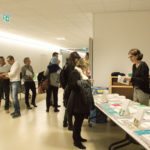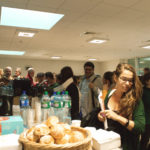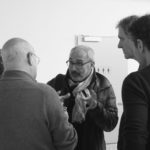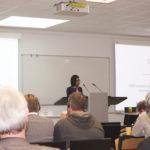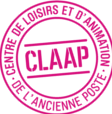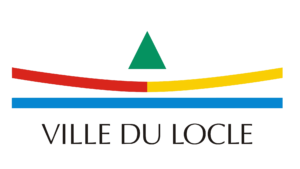
IX Colloquium of the International Socio-cultural Animation Netword (RIA) from 4th to 6th November 2019 at the School of Social Work and Health | EESP | Lausanne
The program consisted of several conferences, symposiums, workshops and field visits to institutions, as well as a festive evening. Flashback on video.
Gallery
Call for contributions
The Ninth Colloquium of the International Socio-cultural Community Development Network (RIA) intends to question, through the notion of « territory », the various issues and challenges confronting socio-cultural community development today.
It is jointly organised by the Social Work sites of the University of Applied Sciences and Arts Western Switzerland (HES-SO).
It has the goal of highlighting the current forms taken by socio-cultural community development, the territories in which it is deployed, as well as
the ways in which it is conceptualised by various stakeholders, be they professionals, volunteers, citizens, politicians or researchers.
Community development is declined in a broad range of modes; it takes place in a variety of professional fields, intervenes with all types of populations of all ages, and mobilises a wide array of intervention methods. It thus is active in many kinds of territories, but is also acted upon by their specificities. Moreover, it is found, under various names and designations, in many countries from the Southern to the Northern hemisphere.
In connection with the evolution of its target populations as well as of the context of its interventions, the very identity of socio-cultural community development, as well as its territories, give rise to many questions on the part of the authorities, of citizens and of professionals themselves. Modes of intervention change, as do collaborations with other social work or health professionals, and the social expectations faced by professionals evolve; these changes have an impact on either broadening or restricting opportunities for community development.
Four specific thematic axes will structure exchanges at the colloquium :
1) Contexts as territories
This first axis pertains to questioning the ways in which contexts structure the range of potentials for socio-cultural community development. Here, the notion of territory pertains to the variety of intervention contexts that range from Northern to Southern countries and from rural to urban areas. The notion of territory also refers to public policies, whether local, national or international and thus to the social actors that mandate, frame or finance community development activities. The disengagement of the State results in placing the various institutions active in the field of socio-cultural community development in the midst of a competitive market; this process has an impact on the methods to be utilised. This axis will thus focus on the diversity of professions concerned with socio-cultural community work and their interdependence with ever singular contexts.
2) Professional territories
This axis will question the professional territories of socio-cultural community work in a three-fold dimension: firstly, through delving into their relations with other professions, regardless of whether the latter belong to the field of social work or not. What are the specificities of social-cultural community development when contrasted to other social work professions? Are we witnessing a continuous increase in the differentiation of socio-cultural community work or, on the contrary, a growing homogenisation of the professions of the field of social intervention? Do the values, the utopias and the instruments that characterise community development really still exclusively belong to it, or are they increasingly mobilised by other professionals? Second, is the territory of tasks attributed to socio-cultural community work by public policies evolving? Do the same activities still justify, in the eyes of policy-makers, the deployment of interventions by community work professionals? In an era in which sustainable development, to quote but one example, has become the watchword of every intervention, what is the role assigned to socio-cultural community development – and what role does it wish to play? Finally, this axis has the goal of questioning the issues of inter-professional intervention for today’s socio-cultural professionals. As they are increasingly integrated into networks, or work in institutions that employ different types of professional staff, community work professionals intervene more frequently in an inter-professional context than on their own. We will thus examine the ways in which socio-cultural community development asserts its specificity in these professional contexts.
3) Target populations as territories
While it potentially works with all types of populations – children, families, the elderly, whether marginalised or not – socio-cultural community development has in fact long been focused on youth and on working-class populations, calling upon its connexion with popular education and with its militant roots. Yet today, because of societal changes and at a time when other population segments are designated as problematic (due for instance to the increase in life expectancy and to population ageing, or to global migratory crises), socio-cultural community work is more and more frequently called upon to focus on new groups (for instance the elderly, or immigrants). This axis will question the ways in which this extension of the territory of socio-cultural community work challenges its practitioners. What responses should be provided to the needs and expectations of these « new » target populations? Are the classical instruments of sociocultural community development able to provide appropriate responses to their specific demands? More broadly, this axis will examine the possible pertinence of articulating conceptions of socio-cultural community development with specific target populations.
4) Methodological territories
The goal of socio-cultural community development is not to integrate populations in an assimilationist perspective, but to support them in the process of constituting themselves as actors of their own lives and their own environment. What tools should be used for the attainment of social citizenship and cultural and social democracy? Can the collective dimension and the direct involvement of target populations still be considered as pertinent objectives? What methodologies do professionals use in order to achieve them (for instance: social diagnosis, participative evaluation, etc.)? Also, in a context in which innovative approaches are increasingly brought to the fore in social intervention, is socio-cultural community development capable of imagining new methodological horizons? What responses do community works professionals provide in terms of new, creative approaches and how do they challenge existing practices? Finally, during the past few years, technological change has influenced our relationships to time and space. As a result, socio-cultural community development sometimes finds itself having to intervene in dematerialised and de-territorialised spaces. How does it deal with this challenge?
Speakers
Monday 04.11.2019

Jean-Claude Gillet
Professeur honoraire des universités, Président honoraire du Réseau International de l'Animation (RIA) – FranceConference:
« Opening of the colloquium in the form of an enigma »
Jean-Claude Gillet is a permanent trade unionist, then a politician; after that a psycho-sociologist, then a professor-researcher at a university institute of technology, training professional animators and a university professor in the educational sciences. After having been Professor Emeritus, he is now an Honorary Professor. In 2003, he was the initiator of the International Socio-cultural Community Development Network (RIA).
Jean-Claude Gillet
Professeur honoraire des universités, Président honoraire du Réseau International de l'Animation (RIA) – France
Alexandre Lambelet
Professeur associé, HETS&Sa | EESP (HES-SO) – SuisseConference:
«Working with elderly people: new territories, new issues?»
If animation has historically addressed primarily the youngest, through the establishment of youth centres or neighbourhood centres for example, how can we think about the role of socio-cultural community development when it wants to respond to the needs and desires of the oldest people? Which territories are relevant for the intervention? Are the classic tools of socio-cultural community development still relevant? On the basis of work carried out both in long-stay institutions and ``outside the walls`` and in the public space, this communication aims to question the challenge that the old age represents for socio-cultural community development.
Alexandre Lambelet
Professeur associé, HETS&Sa | EESP (HES-SO) – Suisse
Ulrike Armbruster Elatifi
Enseignante, HETS Genève – SuisseConference:
«Working with elderly people: new territories, new issues?»
If animation has historically addressed primarily the youngest, through the establishment of youth centres or neighbourhood centres for example, how can we think about the role of socio-cultural community development when it wants to respond to the needs and desires of the oldest people? Which territories are relevant for the intervention? Are the classic tools of socio-cultural community development still relevant? On the basis of work carried out both in long-stay institutions and ``outside the walls`` and in the public space, this communication aims to question the challenge that the old age represents for socio-cultural community development.
Ulrike Armbruster Elatifi
Enseignante, HETS Genève – SuisseTuesday 05.11.2019

Lorenzo Malaguerra
Chef du service culturel, Ville de Monthey et Directeur du Théâtre du Crochetan – Suisse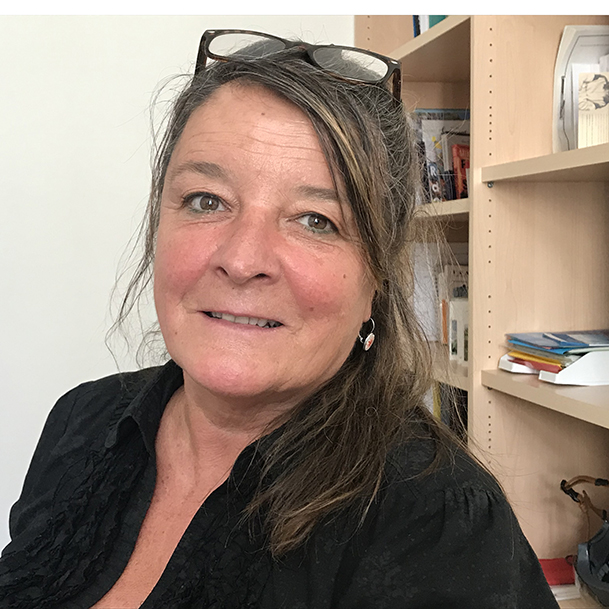
Isabelle Johner
Coordinatrice pour l’association Rinia Contact et la Grève nautique PortchoiseulConférence semi-plénière
Isabelle and Isabelle, both of whom have been working in the field of socio-cultural animation in Geneva, offer you a presentation of their respective rather atypical associations.
- Rinia Contact was originally intended primarily for the Albanian population. Today, it welcomes people from 7 to 77 years old from about forty different countries, mainly families. It offers open spaces where sewing, cooking and rap are only pretexts to meet.
- Created in 2010, the MQLib is located in one of the most precarious neighbourhoods of the region of Geneva.
It welcomes young people of all ages and families. It offers French courses, swimming pool classes for women, community aperitifs, a teenage welcome and various activities during the holidays.
Isabelle Johner
Coordinatrice pour l’association Rinia Contact et la Grève nautique Portchoiseul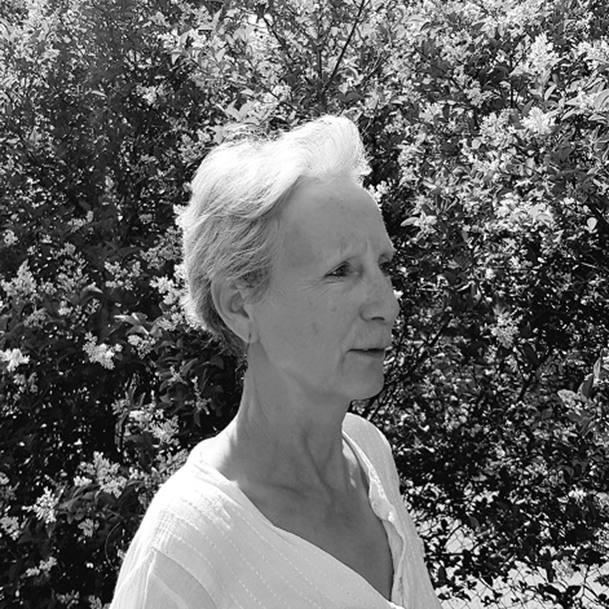
Isabelle Lamm
Animatrice à la Fase, Co-fondatrice de l’association de la Belle-Toile, Présente dès l’ouverture de la Maison de quartier des Libellules en 2010Conférence semi-plénière
Isabelle and Isabelle, both of whom have been working in the field of socio-cultural animation in Geneva, offer you a presentation of their respective rather atypical associations.
- Rinia Contact was originally intended primarily for the Albanian population. Today, it welcomes people from 7 to 77 years old from about forty different countries, mainly families. It offers open spaces where sewing, cooking and rap are only pretexts to meet.
- Created in 2010, the MQLib is located in one of the most precarious neighbourhoods of the region of Geneva.
It welcomes young people of all ages and families. It offers French courses, swimming pool classes for women, community aperitifs, a teenage welcome and various activities during the holidays.
Isabelle Lamm
Animatrice à la Fase, Co-fondatrice de l’association de la Belle-Toile, Présente dès l’ouverture de la Maison de quartier des Libellules en 2010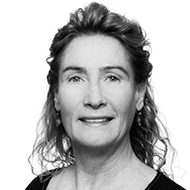
Claudia della Croce
Professeure associée, HETS&Sa | EESP (HES-SO) – SuisseSemi-plenary conference:
« Territories and Ritournelles : The Shifts of Thought in socio-cultural community development »
Claudia della Croce works on the different territories of socio-cultural community development, particularly in relation to participation, culture and social work intervention.
Claudia della Croce travaille sur les différents territoires de l'animation socioculturelle, notamment en lien avec la participation, la culture et l'intervention en travail social.
Claudia della Croce
Professeure associée, HETS&Sa | EESP (HES-SO) – Suisse
Samah Saleh
Université d'An-Najah, Naplouse – PalestineSemi-plenary conference:
« Palestinian Social worker: The ethical and professional dilemmas »
Samah Saleh works about the ethical and professional dilemmas that face Palestinian social workers under the Israeli occupation. This presentation will be based on experiences of five social workers who work on crisis in different social organizations in order to understand the ethical and professional challenges they face in their planning of interventions, and also it is a way to understand how social work as a profession developed in Palestine.
Samah Saleh
Université d'An-Najah, Naplouse – PalestineWednesday 06.11.2019

Manish K. Jha
Professor, Center for Community Organization & Development Practice, Tata Institute of Social Sciences, Mumbai – IndiaSemi-plenary conference :
« The territories of socio-cultural community development : issues and challenges »
The research interest of Professor Manish K. Jha includes Migration and Refugee issues, Community Organisation and Social Action, Marginalities and Justice, Human Rights and Human Security. He teaches courses on Social Action and Movement; Social Policy, Planning and Development Programmes. Prof. Jha has been the project lead of research grant from the British Council, Erasmus, Ford Foundation, University of Chicago and Animal and Society Institute, etc. He is the Projector Director of projects sponsored by University Grants Commission and Indian Council of Social Science Research. Prof. Jha is the vice-president of the Governing board of Calcutta Research Group (http://www.mcrg.ac.in). He has been a recipient of numerous fellowships and has been visiting professor at School of Oriental and African Studies, London, Erasmus Mundus Visiting fellow at University College Dublin, UKIERI visiting Fellowship at Durham University, UK, Palme Professorship at Gothenburg University, Sweden and University of Eastern Finland, Kuopio.
Manish K. Jha
Professor, Center for Community Organization & Development Practice, Tata Institute of Social Sciences, Mumbai – India
Nathalie Casemajor
Professeure-chercheure, Institut national de la recherche scientifique – Centre Urbanisation Culture Société – QuébecSemi-plenary conference:
« Algorithmic audiences: what cultural participation? »
Nathalie Casemajor's work focuses on cultural action, digital practices and citizen mobilization. She is co-director of the Observatoire des médiations culturelles and a member of the Fernand-Dumont Chair in Culture. Her recent activities include a synthesis of knowledge on cultural and digital audiences and the co-editing of a collective book entitled ``Critical Experiences of Cultural Mediation (2017, PUL)``.
Nathalie Casemajor
Professeure-chercheure, Institut national de la recherche scientifique – Centre Urbanisation Culture Société – Québec
Pascal Tozzi
Professeur des Universités, Université - IUT Bordeaux Montaigne – FranceClosing conference
Pascal Tozzi is a professor of spatial planning and urban development at the University of Bordeaux-Montaigne. Able to direct research in political science, he is also Deputy Director of a mixed unit of the French CNRS and teaches at the Institut universitaire technologique de Bordeaux in the Social Careers department.
President of the International Socio-cultural Community Development Network (RIA), he is also in charge of the collection at Carrières sociales éditions (Bordeaux, France), an association publishing house that publishes books on current issues in the sociocultural field.
Pascal Tozzi
Professeur des Universités, Université - IUT Bordeaux Montaigne – FranceOrganisation
Organisation Committee (Switzerland)
- Ulrike Armbruster Elatifi, Haute école de travail social, HES-SO, Geneva
- Karine Darbellay, Haute école de travail social Valais/Wallis, HES-SO, Sierre
- Nicole Fumeaux-Evéquoz, Haute école de travail social Valais/Wallis, HES-SO, Sierre
- Sylvia Garcia Delahaye, Haute école de travail social, HES-SO, Geneva
- Alexandre Lambelet, Haute école de travail social et de la santé (EESP), HES-SO, Lausanne
- Yuri Tironi, Haute école de travail social et de la santé (EESP), HES-SO, Lausanne
Scientific Committee
- André Antoniadis, Haute école de travail social et de la santé (EESP), HES-SO, Lausanne
- Antonia Arevalo, Universidad Externado de Colombia (Colombia)
- Maria-Angela Belfiore Wanderley, Pontifícia Universidade Católica de São Paulo (Brazil)
- Aicha Boukrissa, University of Algiers (Algeria)
- Fernando Curto, University of Zaragoza (Spain)
- Claudia della Croce, Haute école de travail social et de la santé (EESP), HES-SO, Lausanne
- Chantal Furrer Rey, Haute école de travail social Valais/Wallis, HES-SO, Sierre
- Jean-Claude Gillet, University of Bordeaux (France)
- Luc Greffier, IUT, Bordeaux Montaigne (France)
- Anne Jetzer, Haute école de travail social et de la santé (EESP), HES-SO, Lausanne
- Jean-Marie Lafortune, Université du Québec à Montréal, UQÀM (Québec, Canada)
- Stéphane Roduit, Haute école de travail social Valais/Wallis, HES-SO, Sierre
- Izabel Solyszko Gomez, Universidad Externado de Colombia, Bogota (Colombia)
- Pascal Tozzi, University of Bordeaux (France)
- Bernard Wandeler, HSLU, Lucerne (Switzerland)
- Lucero Zamudio Cardenas, Universidad Externado de Colombia, Bogota (Colombia)
Organisation institutions
Schedule
The program can evolve until the conference
Café-croissants
Elisabeth Baume-Schneider, Directrice, HETS&Sa | EESP (HES-SO)
Olivier Grand, Responsable Domaine Travail social, HES-SO
David Payot, Conseiller municipal à la ville de Lausanne
Jean-Claude Gillet, Professeur honoraire des universités, Président honoraire du Réseau International de l'Animation (RIA) – France
Ulrike Armbruster Elatifi et Alexandre Lambelet, Professeur·e·s HES-SO
Pause
Ateliers
Repas
Le programme précis sera mis en ligne en septembre
Distribution des dossiers et badges
Café-croissants
Lorenzo Malaguerra, Directeur du Théatre du Crochetan, Monthey
Auditoire B040
Isabelle Johner et Isabelle Lamm
Salle 232-233
Claudia della Croce, Professeure HES-SO
Salle B232-233
Samah Saleh, Université d’An-Najah, Naplouse, Palestine
Auditoire B040
Distribution des dossiers et badges
Café-croissants
Ateliers
Pause
Ateliers
Repas
Manish K. Jha, Tata Institute of Social Sciences, Mumbai, India
Auditoire B040
Nathalie Casemajor, professeure-chercheure, Institut national de la recherche scientifique - Centre Urbanisation Culture Société
Salle B232-233
Pause
Pascal Tozzi, Professeur des Universités, Université Bordeaux-Montaigne | Président du RIA
Auditoire B040
Remise des prix du concours Instagram
Workshop
Manuela Calado, Véronique Eggimann, Virginie Guisan, Anne-Claude Liardet, Juliette Bauer et Claudia della Croce
Social Entrepreneurship for Sustainable Livelihood in Rural India-an Experiment on Tagore's philosophy and approaches to community development
Prasanta Kumar Ghosh (Inde)
The experience of an action-reflection group for Communty health promotion
Anna Planas-Llado, Pere Soler-Maso, Narcis Turon, Maribel Pena Casas, Mariona Salvador (Espagne)
Social sensitization of breast cancer by the directorates of social activity. Comparative study between urban and rural areas in Algeria
Chafik Ikoufane (Algérie)
Presente y futuro de la Animación Sociocultural en España: estudio exploratorio
Javier Corzan Ripol, Ximo Valero, Itahisa Perez-Perez (Espagne)
Perspectiva actual de la animación sociocultural
Fina Cava (Espagne)
L’animation socioculturelle en Tunisie, entre « Métier » et « mission » dans un contexte sociétal en mutation
Med Habib Khadhraoui (Tunisie)
Fonctionnaires du social, un métier de conciliations
Higinio Ferreira, Gaëlle Bianco, Célien Dubuis, Roxane Dumont, Julien Rey (Suisse)
Sous-utilisation des compétences des animateurs socioculturels dans l’administration publique camerounaise
Sonia Milong (Cameroun)
Quel accompagnement de leur vie sexuelle et affective, les personnes résidant en EMS souhaitent-elles ?
Maurice Avramito, Nicole Brzak, Valérie Hugentobler, Alexandre Lambelet (Suisse)
Projet intergénérationnel
Anira Launaz (Suisse)
Un concept interdisciplinaire : Montessori
Audrey Mayor, Guida Grancho (Suisse)
Vers une vision positive de l'accompagnement en EMS - L'exemple de la Fondation les Baumettes
Margaux Thévenaz (Suisse)
Que peut apporter l'évaluation transformative au travail de jeunesse ? Pistes de réflexion à partir d'un projet européen de partenariat stratégique
Christophe Dansac, Marc Carletti (France)
Enjeux environnementaux et animation socioculturelle
Colin Wahli, Cédric Millot (Suisse)
Quand l’ordre social du quartier s’insinue dans un « accueil libre »
Lara Rodriguez Trincado (France)
Expérimentation d'une anti-méthode de projet nomade, culturel et social en territoire prioritaire. Faire territoire-Faire rhizome-Faire humanité
Ramon Ortiz de Urbina (France)
Martina Gerngross, Lukas Fellmann, Tobias Bauer et Danièle Warynski
Un ancrage territorial fort en milieu rural. 10 ans d’expérience Déclam’
Lara Rodriguez Trincado (France)
Le centre de loisirs et culture de Martigny : 35 ans d’expérience sur les territoires de sa ville
Steve Chambovey, Michellod Constance, Corthay Mariel (Suisse)
Animation jeunesse en milieu rural, quelles bases pour l’action auprès des jeunes « sans Cité » ?
Sophie Ruel, Christophe Dansac, Cécile Vachée (France)
Enfoques profesionales de la Educación para la Transformación Social/Animación Socioeducativa
Javier Corzan Ripol, Silvia Lopez Zumeta , Itahisa Perez-Perez (Espagne)
Las competencias de los profesionales de juventud en la relación con la animación sociocultural
Carles Vila Mumbru (Espagne)
Des pratiques musiciennes aux pratiques socio-musicales : de nouveaux horizons professionnels entre animation socioculturelle et médiation de la musique
Bérangère Dujardin (Suisse)
Les nouveaux territoires géographiques, professionnels et critiques de l’animation à l’ère de la créativité et des populismes
Jean-Marie Lafortune (Canada)
Arts visuels et patrimoine culturel comme territoires d’animation créatrice
Ana da Silva (Portugal)
Le sport, outil d’émancipation et de démocratie : comment l’intégrer dans un cursus d’études en haute-école sociale
Delphine Mathy, Laure Compère (Belgique)
Vers une éducation globale de l’enfant : des territoires professionnels qui s’entremêlent
Annelyse Spack, Laurent Bovey (Suisse)
La construction des territoires professionnels par les pratiques discursives : stratégies et enjeux identitaires pour l’animation jeunesse
Marc Carletti (France)
Marco Galli, Latha Heiniger et Cédric Bonnébault
Volunteering as a tool for citizenship ?
Sven Svensson (Belgique)
Community Development Practices; Issues and Challenges in Tanzania
Bernard Ndiege, Boniface Kamnyungu, Elkana Elkana (Tanzanie)
<Interprofessionelle Teamwork – Soziokulturelle Animation im Alters- und Pflegeheim
Stephan Kirchschlager (Suisse)
Gemeinnützige unabhängige digitale Territorien der Soziokultur
Rafael Freuler (Suisse)
Kulturelle Teilhabe als professionnelle Inter- und Transterritorialität – Kann / soll die Soziokulturelle Animation ihr Territorium abstecken ?
Dominic Zimmermann, Isabelle Odermatt (Suisse)
Usage des technologies numériques en intervention sociale : quels enjeux éthiques pour les professionnel-le-s de l’animation socioculturelle dans les structures d’accueil pour personnes âgées ?
André Antoniadis (Suisse)
Fracture numérique – quelle place pour les ASC ?
Greg Narbel (Suisse)
Les équipes distribuées à l'ère numérique. Défis de la fonction de liaison ``à distance`` dans la pratique d'organisation communautaire au Québec
Sylvie Jochems, Erick D’Amours (Canada)
Le Socio-culturel en Algérie : Est-il sollicité pour interpeler et intervenir auprès du grand public dans l’espace public en Algérie ?
Aicha Boukrissa, Nouara Hocine (Algérie)
Les publics comme territoires ou comment valoriser les patrimoines culturels populaires ?
Pierre Etienne (Belgique)
Comprendre la place des jeunes dans la formulation, par le Conseil Départemental de Haute-Garonne, d’une ambition jeunesse et conséquences sur leur accompagnement
Véronique Bordes (France)
Pour un urbanisme social et collaboratif
Association AIDEC
Diego Rigamonti, Jérôme Mallon (Suisse)
L’animation socioculturelle dans les espaces ruraux du Valais Romand : un terrain propice à la médiation des différences
Michèle Michaud (Suisse)
Aux « interfaces » entre la ville et ses quartiers : analyse d’un processus participatif à Zürich
Peter Streckeisen (Suisse)
Imaginer l’animation des quartiers sans habitants
Yann Boggio, Salomé Baron (Suisse)
Un assemblage d'apprentissage pour un urbanisme participatif
Swetha Rao Dhananka, Laurent Essig, Sylviane Gosteli, Jérôme Mallon, Michael Schweizer, Diego Rigamonti, Laurent Thévoz (Suisse)
Sens et signification dans l’évaluation émancipatrice de projets d’animation socioculturelle auprès des jeunes. L’expérience d’un centre socioculturel lausannois
Franco De Guglielmo, Antonio Iannaccone (Suisse)
Le modèle MMCTP en animation – Du questionnement théorique à l’analyse des pratiques, applications et perspectives
Christophe Dansac, Cécile Vachée, Sophie Ruel (France)
Sexualud: una experiencia integradora desde la Animación Sociocultural (Eje 4)
Esther Consolación, González Alonso, Juan Tomas Latasa Lerga (Espagne)
Tejiendo saberes territoriales: La experiencia de la construcción de familiaridades en el aula por medio del dialogo entre los géneros y a las generaciones (Eje 3)
Izabel Solyszko (Colombie)
Losing Diamantino: Local knowledge, visual narratives and socio-cultural Animation
Mario Montez (Portugal)
The Kabylian Community: Towards a People Centred Socio-cultural Development
Redouane Touati, John Traxler (Algérie)
Dimension 13’17 - Festi’neuch et le Centre de Loisirs tiennent compte de la jeunesse !
Michaël Frascotti (Suisse)
Les publics comme territoire : la zone de confort
Lyne Legault, Micheline Potvin (Canada)
Le participatif : Du local au global
Kete Fluck, Isabelle Fringuet-Paturle, Sonja Hanachi, Anna Conti (Suisse)
Le rôle de l’animation socioculturelle pour le développement du territoire : exemple de l’aménagement contributif d’un espace public avec des jeunes
Jérôme Heim (Suisse)
Animations et convergence vers ``l'Agir Avec``
Pascal Midrez (Belgique)
Les territoires engagés de l’action communautaire – une perspective philosophique
Thierry Gutknecht (Suisse)
Intervention auprès de nouveaux publics : la population SENIORS
Tania Marcia Nerfin, Yves Perrot, Nicolas Rogg (Suisse)
Quartiers Solidaires et le pouvoir d'agir des seniors
Caroline Piguet (Suisse)
Isabelle Soguel et Sarah Stegmüller
The community dimension in youth empowerment: a proposal for Evaluation
Pere Soler-Masó, Xavier Úcar Martínez, Pilar Rodrigo Moriche, Laura Corbella Molina, Carme Trull Oliva (Espagne)
The narrative strategy - A way to rethink the processes favouring the empowerment of young people
Anna Planas-Lladó, Asun Llena, Carles Vila, Paloma Valdivia, Mireia Serra (Espagne)
Territoires de l’action socioculturelle et territoires mémoriels de migrants : le cas d’une fresque murale réalisée par la communauté chilienne de Pessac
Jorge Ibanez (France)
Les enjeux du développement communautaire dans le Sud du Tchad
Ladiba Gondeu (Tchad)
A socio-cultural approach to labour market integration of marginalized youth
Bernard Wandeler, Peter Stade (Suisse)
Travail social hors murs et médiation urbaine : quels acteurs pour quels publics et quelle complémentarité dans le contexte de deux villes de Suisse romande ?
Livio Andreoli, Stéphane Roduit, Karine Darbellay (Suisse)
Réinsertion sociale par la créativité
Anne-Marie Foare (Suisse)
Professionnalisation et construction de l’animation socioculturelle sous le regard du genre. Le cas des centres lausannois
Carola Togni, Dominique Malatesta (Suisse)
Du face-à-face au côte-à-côte
Baptiste Besse-Patin (France)
L’évaluation participative comme territoire méthodologique de l’animation socioculturelle favorisant la définition de politiques publiques avec des jeunes
Sylvia Garcia Delahaye, Joëlle Libois, Danièle Warynski (Suisse)
De l'intelligence territoriale à l'intelligence collective
Nathalie Sorita (France)
Une maille à l’endroit, une maille à l’envers : ou le tricotage territorial
Gabriel Bender (Suisse)
Dynamique d’accompagnement des organisations des personnes âgées en matière d’animation socioculturelle : cas des organisations affiliées à la Direction des Loisirs en Côte d’Ivoire
Bi Tizie Emmanuel Gala, Antoine Droh, Bi Tra Jamal Sehi (Côte d'Ivoire)
L’animation socioculturelle en psychiatrie de l’âge avancée – enjeux et défis
Anne Jetzer, Fabienne Malbois, Alexandre Lambelet (Suisse)

